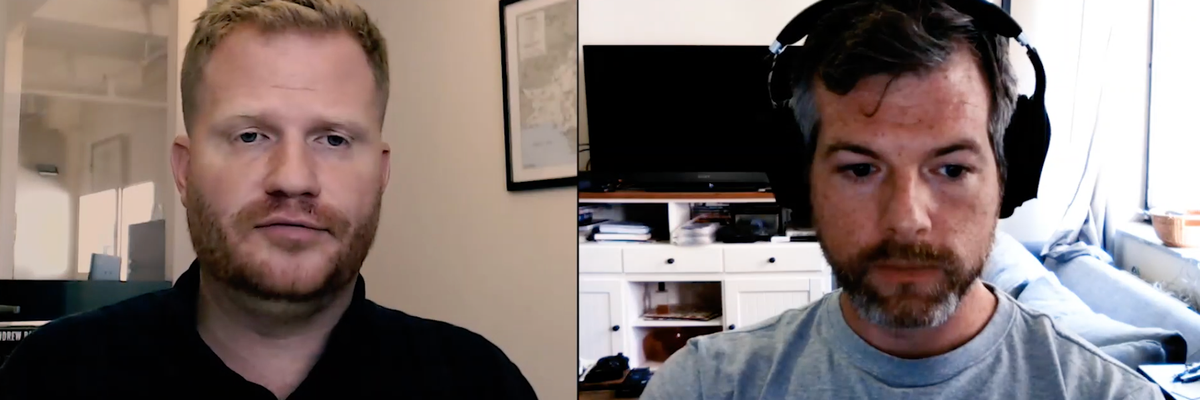Investigative journalist, author, and Iraq veteran Jack Murphy sat down with the Quincy Institute's Adam Weinstein to talk about U.S. drone strikes in Afghanistan, and how loosened rules of engagement led to an accelerated number of strikes, unacknowledged civilian deaths, and moral injury among soldiers and veterans.
Murphy, who served as a Sniper and Team Leader in 3rd Ranger Battalion and as a Senior Weapons Sergeant on a Military Free Fall team in 5th Special Forces Group, recalled to Weinstein, an Afghanistan War veteran, how by 2018 the rules of engagement were loosened to the point where anyone on the ground who fit the "criteria" were vulnerable to a strike. Watch here:
The Taliban had been dismantling cell phone towers for years, so insurgents and civilians used walkie-talkies to communicate, he noted. "The ROE (rules of engagement) could be met by seeing someone speaking on a radio, carrying a radio, just touching a radio at some point." There was no human intelligence or friendly forces on the ground, everything was communicated by surveillance drones monitoring potential targets via cameras. Once these "eagle scans" identified targets, they would call in the armed drones for the strike itself.
At this point in 2018 "you're going back to Vietnam-era body counts...the metric for success is the number of strikes you're doing, the number of people you are killing every day. And if commanders on the ground know that, they're going to do things to make themselves look as good as possible. That means, at least in this case, striking people whether they are armed combatants or not."
"It's a very Orwellian, dystopian kind of way to think about it," he continues. "You have this sort of unblinking eye, this surveillance eye hovering over population in Afghanistan, waiting for them to 'fuck up.' I think that a lot of the animosity that the people had for us."
He and Weinstein talk about the trauma among drone operators. Following targets on the ground, close enough to see whether they are wearing eyeglasses, for hours and days on time, then striking them, watching their bodies get picked up, and the family grieving — it takes a toll. "There's a significant moral injury that these people incur, especially when they are part of lethal strikes that they feel are immoral or unethical," Murphy contends.
A lot of these feelings, he said, have been resurrected with the withdrawal and the war in Afghanistan now in the rearview mirror. Many veterans are now asking "what did it all mean? What was it for?"
















